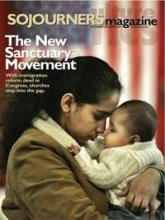In the foothills of the San Gabriel Mountains, 25 miles northeast of Los Angeles, Azusa Pacific University's East campus sits at the corner of a busy intersection in the predominantly Latino community of Azusa, California. A prominent fortress-like building announces the school's Christian presence with a bright red modern cross emblem. The majority of the university's students are from white upper-middle class backgrounds, in sharp contrast to the not-quite-middle-class, multiethnic neighborhood surrounding the campus. In many respects, this evangelical institution speaks of privilege and resources—something that is obvious to the community. These demarcations of race, religion, and class have hurt APU's reputation in the past, when "Christian university" did not necessarily translate to service and relationship with the neighbors down the street.
Remarkably, a small number of faculty, staff, and students have pushed the boundaries of administrative comfort and traditional academics to reach out as learners—not self-sufficient Christian problem-solvers—to their neighbors. As they pursue alternative models of faith and justice, students and communities are being radically transformed, healed, and renewed by the experience. In particular, the Office of Ministry and Service and the Department of Global Studies and Sociology are making headway with fresh approaches to education and service.
Students who major in global studies learn about both local and world issues through on-campus classes and two semester-long immersion programs: First in Los Angeles (the L.A. Term) and then abroad through the Global Learning Term. According to Richard Slimbach, professor of global studies and sociology, the L.A. Term "is one of [students'] first experiences being a minority 24/7 in communities, organizations, families. That begins to change their consciousness about the power dynamics and distribution in society.
Read the Full Article
